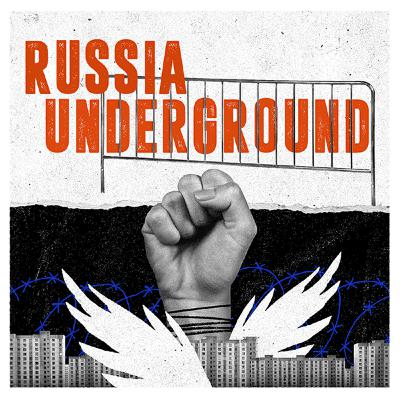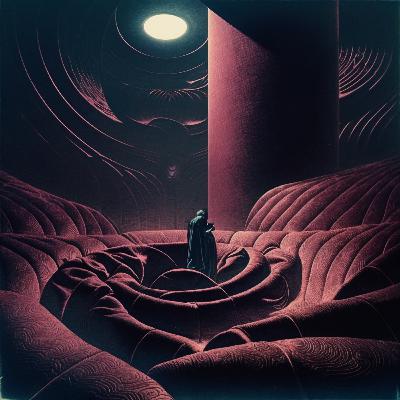Discover Russia Underground
Russia Underground

Russia Underground
Author: Russia Underground
Subscribed: 8Played: 84Subscribe
Share
© Russia Underground
Description
Russia Underground takes you on a journey to meet the Russians who continue to battle for free speech, artistic freedoms, and basic human rights despite Putin’s brutal wartime crackdown. Made by a team of activists, and journalists. Includes interviews conducted on the ground inside Russia.
7 Episodes
Reverse
When it comes to books, Russia more and more resembles the Soviet Union – despite modern technology. Censorship means that publishers have moved abroad, bootleg copies of banned texts are sold online, and even the language of literature has changed, becoming more allegorical, euphemistic, and indirect. We spoke to some of those still championing reading in wartime Russia – independent booksellers, online bookclub organisers, and publishers. Is reading itself now an act of resistance?
When a teacher told Olga’s daughter to write a letter to a Russian soldier in Ukraine, she wrote simply: “Don’t kill anyone!” This time, there were no repercussions. But education is increasingly subject to political interference, and schools are more and more a place of propaganda, rather than learning. Interference is particularly intense when it comes to the teaching of history. How have history teachers, parents and students responded? And where is there room for resistance?
In Russia, the history that’s shown on TV, written about in books, and taught in schools and universities is more tightly controlled than ever. As a result, people are turning inwards. And family stories have become a way not only to confront taboos in Putin’s Russia, but a relatively risk-free way of trying to understand contemporary political repression, violence, and censorship. We speak to some of those who are grappling with where they come from.
Our first episode is an introduction to what it means to be ‘underground’ in modern Russia, and the myriad of ways anti-war Russians can – and do – express their opposition to the fighting in Ukraine and the political direction taken by the Kremlin. We meet a documentary filmmaker who has been shooting the reality of wartime Russia, and attend a screening of one of her recent films in Moscow. She is an advocate of so-called ‘partisan filmmaking’, and grapples with issues of risk and self-censorship. And she worries about what will happen if her films are successful and she gains a public profile – could she attract unwanted attention from the authorities?In a city in the Ural Mountains region, we speak to a political activist and organiser who has been questioned by police, and whose events have been raided. And we attend an event in Moscow where people are writing letters to Russia’s political prisoners – an important way of expressing support. The organiser of the event’s own husband is currently in jail (for reading anti-war poems in public), and she talks about the experience of his arrest and trial. The identities of some of our interviewees have been disguised for safety reasons.
asfvasd
Repressive laws and a wartime crackdown have made Russia’s LGBTQ+ community more invisible than ever. But activists continue operating despite the risks, and NGOs have found a way to keep operating on the ground (even if staff are located abroad).We spoke with Max, a trans man in Rostov-on-Don, who opposes the war in Ukraine and has remained involved in political activism since the full-scale invasion. Max rushed into his transition when Russia first announced it was looking to ban people from changing their gender. We also talked to Margarita, a gay woman in Yekaterinburg who runs an underground organization helping the LGBTQ+ community. Despite the safety concerns, they don’t want to stop what they’re doing. The identities of some of our interviewees have been disguised for safety reasons.
Hosts Howard Amos and Nina Berezner look at the immense challenges facing independent journalism in Russia, which continues to cling on amid censorship and repression. They explore the emergence of what some have called a “new generation” of journalists, which includes Vera, a 21-year-old reporter from Belgorod, who covers the consequences of the war in Ukraine for her hometown despite the growing risks. We speak with journalists who have gone underground, use pseudonyms to evade government scrutiny, and exercise self-censorship to keep working. And we talk to a media manager who set-up a publication called the Prison Bulletin, a journal for those in Russian prisons. Together, they highlight the resilience and adaptability of Russian journalists who chose not to emigrate – and who are trying to navigate the treacherous landscape of wartime censorship and a crackdown on free speech.The identities of some of our interviewees have been disguised for safety reasons.






